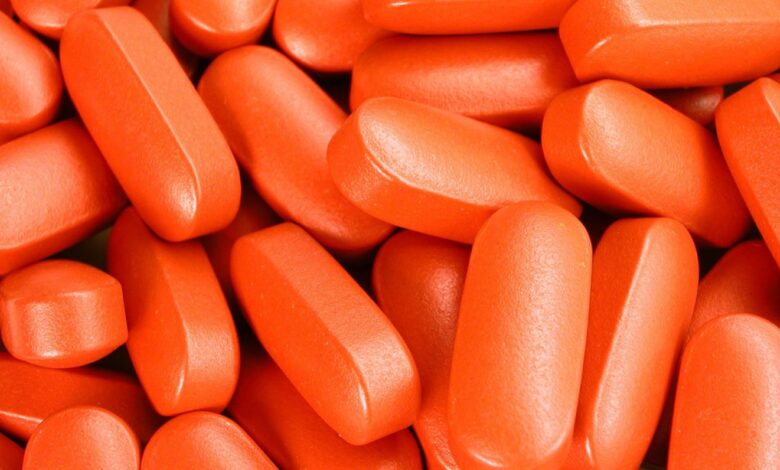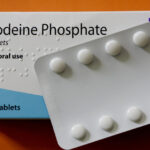Dextroamphetamines: Uses, How It Works, Side Effects, Addiction

Dextroamphetamine is a type of central nervous system stimulant that affects the levels of certain natural substances in the brain. It is commonly prescribed as part of a comprehensive treatment program to manage symptoms of attention deficit hyperactivity disorder (ADHD) in both adults and children. ADHD symptoms include difficulty focusing, impulsivity, and hyperactivity.
Additionally, dextroamphetamine is used to treat narcolepsy, a sleep disorder characterized by excessive daytime sleepiness and sudden episodes of sleep attacks. By promoting wakefulness, it helps individuals with narcolepsy stay alert and combat excessive sleepiness. It is worth noting that dextroamphetamine is also known to be used off-label for other purposes. Some individuals may use it as an athletic performance enhancer or a cognitive enhancer to improve focus, concentration, and productivity. Additionally, dextroamphetamine has been misused recreationally for its potential aphrodisiac effects and euphoric sensations. However, such off-label and recreational uses are not medically approved and carry potential risks and side effects.
It is important to emphasize that the use of dextroamphetamine for any purpose should only be done under the supervision of a healthcare professional and as prescribed. Misuse or unauthorized use of this medication can have serious health consequences and legal implications.
How quickly does dextroamphetamine work?
Dextroamphetamine typically starts to work relatively quickly after it is taken, although the exact onset time can vary among individuals. When taken orally, the effects of dextroamphetamine usually begin within 30 minutes to an hour after ingestion.
However, it’s important to note that the full therapeutic effects of dextroamphetamine may take some time to develop. It often requires consistent use over a period of days or weeks to achieve the desired benefits in managing ADHD symptoms or narcolepsy.
The duration of dextroamphetamine’s effects can also vary. Immediate-release formulations typically last around 4 to 6 hours, while extended-release versions can provide effects for up to 12 hours or longer, depending on the specific formulation.
It’s important to follow the prescribed dosing instructions and consult with a healthcare professional for accurate information on the onset, duration, and optimal use of dextroamphetamine based on your specific condition and treatment plan.
How should dextroamphetamine be used?
Dextroamphetamine comes as a liquid, tablet, and an extended-release (long-acting) capsule to take by mouth. The tablet is usually taken 2 to 3 times daily with or without food. The extended-release capsule is usually taken once a day with or without food. The liquid is usually taken once or twice daily with or without food. Take dextroamphetamine at around the same time(s) every day. If you are taking dextroamphetamine tablets, take your first dose as soon as you wake up in the morning, and space your doses by 4 to 6 hours. Do not take dextroamphetamine in the evening because it may cause difficulty falling asleep or staying asleep. Follow the directions on your prescription label carefully, and ask your doctor or pharmacist to explain any part you do not understand. Take dextroamphetamine exactly as directed.
Do not chew or crush the extended-release capsules. Your doctor will probably start you on a low dose of dextroamphetamine and gradually increase your dose, not more often than once every week. Your doctor may tell you to stop taking dextroamphetamine from time to time to see if the medication is still needed. Follow these directions carefully.
Other uses for this medicine
Dextroamphetamine should not be used to treat excessive tiredness that is not caused by narcolepsy.
What side effects can this medication cause?
Dextroamphetamine may cause side effects. Tell your doctor if any of these symptoms are severe or do not go away:
- headache
- dry mouth
- unpleasant taste
- constipation
- weight loss
- changes in sex drive or ability
Some side effects can be serious. If you experience any of the following symptoms, call your doctor immediately:
- excessive tiredness
- slow or difficult speech
- dizziness
- weakness or numbness of an arm or leg
- seizures
- mood changes
- believing things that are not true
- feeling unusually suspicious of others
- agitation, hallucinations (seeing things or hearing voices that do not exist), fever, sweating, confusion, fast heartbeat, shivering, severe muscle stiffness or twitching, loss of coordination, nausea, vomiting, or diarrhea
- hallucinations (seeing things or hearing voices that do not exist)
- abnormal movements
- verbal tics
- changes in vision or blurred vision
- hives
- paleness or blue color of fingers or toes
- pain, burning, or tingling in the hands or feet
- unexplained wounds appearing on fingers or toes
Dextroamphetamine may cause sudden death in children and teenagers, especially children and teenagers who have heart defects or serious heart problems. This medication also may cause sudden death, heart attack or stroke in adults, especially adults who have heart defects or serious heart problems. Call your doctor right away if you or your child has any signs of heart problems while taking this medication including: chest pain, shortness of breath, or fainting. Talk to your doctor about the risks of taking this medication.
Dextroamphetamine may slow children’s growth or weight gain. Your child’s doctor will watch his or her growth carefully. Talk to your child’s doctor if you have concerns about your child’s growth or weight gain while he or she is taking this medication. Talk to your child’s doctor about the risks of giving dextroamphetamine to your child.
Dextroamphetamine may cause other side effects. Call your doctor if you have any unusual problems while taking this medication.
Dextroamphetamine Safety Information
Dextroamphetamine can be habit-forming. Do not take a larger dose, take it more often, or take it for a longer time than prescribed by your doctor. If you take too much dextroamphetamine, you may continue to feel a need to take large amounts of the medication, and you may experience unusual changes in your behavior.. You or your caregiver should tell your doctor immediately if you experience any of the following symptoms: fast, pounding, or irregular heartbeat; sweating; dilated pupils; abnormally excited mood; irritability; restlessness; difficulty falling sleeping or staying asleep; hostility; aggression; anxiety; loss of appetite; loss of coordination; uncontrollable movement of a part of the body; flushed skin; vomiting; stomach pain; or thinking about harming or killing oneself or others or planning or trying to do so. Overusing dextroamphetamine may also cause serious heart problems or sudden death.
If you take too much dexmethylphenidate, you may continue to feel a need to take large amounts of the medication, and you may experience unusual changes in your behavior
Tell your doctor if you or anyone in your family drinks or has ever drunk large amounts of alcohol, uses or has ever used street drugs, or has overused prescription medications. Your doctor will probably not prescribe dextroamphetamine for you.
Do not stop taking dextroamphetamine without talking to your doctor, especially if you have overused the medication. Your doctor will probably decrease your dose gradually and monitor you carefully during this time. You may experience depression and extreme tiredness if you suddenly stop taking dextroamphetamine after overusing it.
Do not sell, give away, or let anyone else take your medication. Selling or giving away dextroamphetamine is against the law and may harm others. Store dextroamphetamine in a safe place so that no one else can take it accidentally or on purpose. Keep track of how many tablets or capsules are left so you will know if any are missing.
Your doctor or pharmacist will give you the manufacturer’s patient information sheet (Medication Guide) when you begin treatment with dextroamphetamine each time you get more medication.
How to Overcome Dextroamphetamine Addiction
Overcoming dextroamphetamine addiction can be challenging, but with the right approach and support, it is possible. Here are some steps you can take to address dextroamphetamine addiction:
1. Acknowledge the Problem: Recognize and accept that you have an addiction to dextroamphetamine. Acknowledging the issue is the first step toward recovery.
2. Seek Professional Help: Consult with a healthcare professional or addiction specialist who can provide guidance and support throughout your recovery journey. They can help create an individualized treatment plan based on your needs.
3. Detoxification: Dextroamphetamine addiction often requires a supervised detoxification process. This involves gradually reducing your dosage under medical supervision to minimize withdrawal symptoms and ensure your safety.
4. Therapy and Counseling: Engage in individual therapy or counseling sessions to address the underlying factors contributing to your addiction. Cognitive-behavioral therapy (CBT), motivational interviewing, and other evidence-based therapies can help you understand your triggers, develop coping mechanisms, and modify addictive behaviors.
5. Support Groups: Join support groups or 12-step programs like Narcotics Anonymous (NA) that provide a supportive community of individuals facing similar challenges. These groups can offer guidance, accountability, and a safe space for sharing experiences.
6. Lifestyle Changes: Make positive changes in your lifestyle to support your recovery. This may include adopting healthy habits such as regular exercise, a balanced diet, and sufficient sleep. Engaging in activities that promote physical and mental well-being can help reduce cravings and improve overall resilience.
7. Avoid Triggers: Identify and avoid situations, people, or environments that may trigger cravings or temptations to use dextroamphetamine. Develop strategies to cope with triggers effectively, such as engaging in alternative activities or seeking support from your network.
8. Build a Support System: Surround yourself with a strong support system that includes friends, family, or support groups who understand and support your recovery goals. Having a network of people who encourage and motivate you can make a significant difference in your journey.
9. Practice Self-Care: Prioritize self-care activities that promote relaxation, stress reduction, and emotional well-being. This can include practicing mindfulness, engaging in hobbies, or pursuing activities that bring you joy and fulfillment.
10. Long-Term Aftercare: Addiction recovery is an ongoing process, so it is essential to maintain your sobriety through long-term aftercare. This may involve regular therapy sessions, attending support groups, and staying connected with your support network.
Remember, overcoming dextroamphetamine addiction is a personal journey, and recovery timelines may vary for each individual. Be patient, kind to yourself, and celebrate your progress along the way. It is important to seek professional help and support as you navigate this process.




